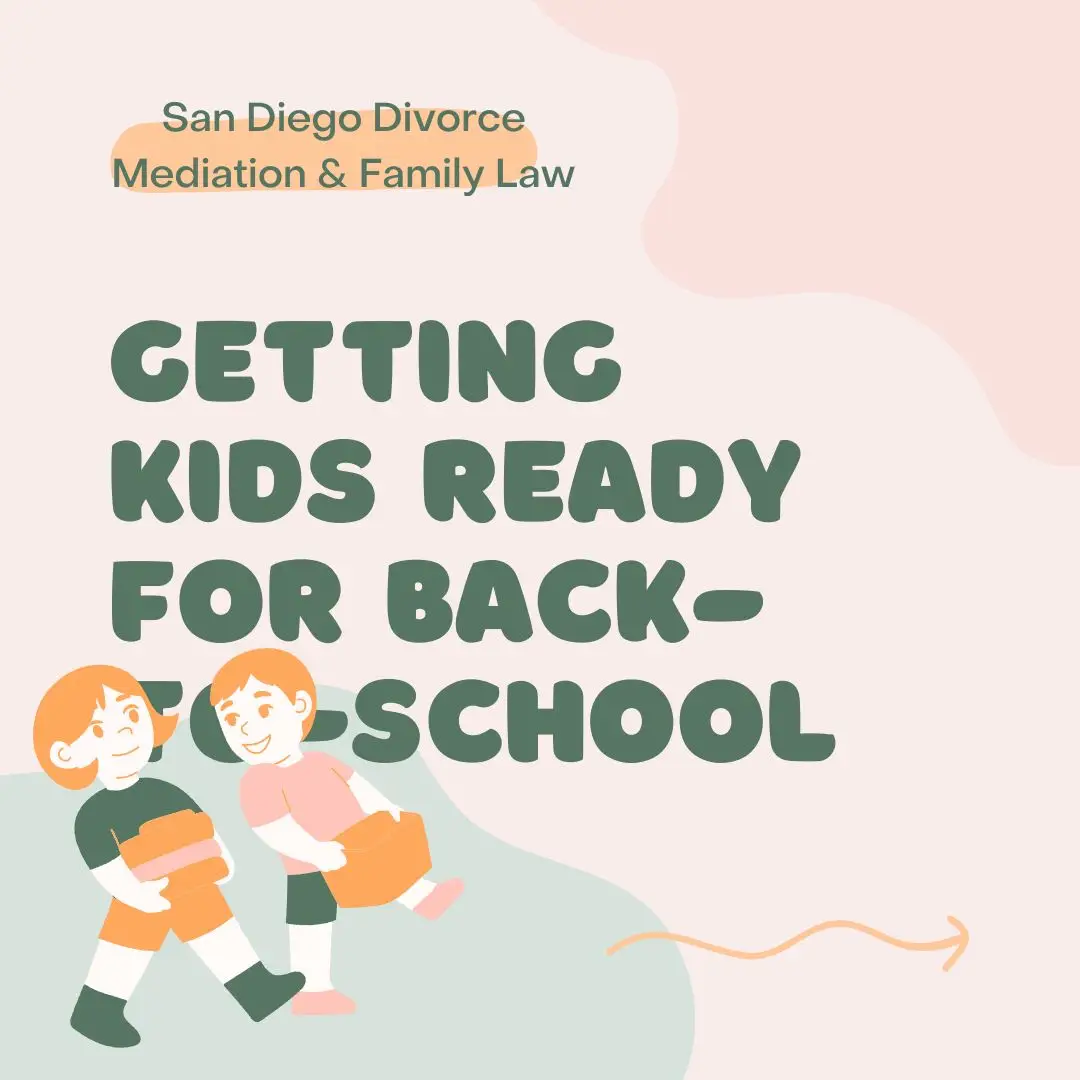
Helping Your Kids Go Back to School During a Separation: A Parent’s Guide
School is supposed to be a place of learning, friendship, and growth. But what happens when the world outside those classroom walls is falling apart? If your parents are separating, the start of a new school year can feel overwhelming. It’s normal to experience a rollercoaster of emotions – from anger and sadness to confusion and fear.
You might worry about how your friends will react, how your school work will be affected, or simply how to cope with the changes at home. This guide is here to help. We understand that this is a tough time, and you’re not alone.
We’ll explore practical strategies for managing your emotions, tips for navigating school life, and advice on communicating your feelings. Remember, it’s okay to ask for help – there are people who care about you and want to support you.
1. Understanding Your Child’s Emotions
Your child is experiencing a significant upheaval with your separation. It’s crucial to understand that their emotions are complex and ever-changing. They might express anger, sadness, confusion, or even a mix of feelings. It’s important to remember that these are normal reactions to a difficult situation.
Your child might withdraw, become irritable, or exhibit changes in behavior. These are often signs of underlying emotional turmoil. While it can be challenging, try to maintain patience and understanding. Reassure your child that their feelings are valid and that you’re there to listen.
Creating a safe space for your child to express their emotions is essential. Encourage open communication by asking questions like, “How are you feeling today?” or “Is there anything you want to talk about?” Active listening shows that you care and are invested in their well-being.
Remember, children look to their parents for guidance. By modeling healthy ways to cope with stress, you’re teaching them valuable life skills.
2. Effective Communication with Your Child
Open and honest communication is essential during this challenging time. Your child needs to know that they can talk to you about their feelings without fear of judgment or criticism. Create a safe space where they feel comfortable sharing their thoughts and concerns.
When discussing the separation, use age-appropriate language. Be honest but avoid overwhelming your child with details. Focus on the positive aspects of the changes, such as spending more quality time with each parent individually. Reassure them that their love for both parents remains unchanged.
It’s crucial to emphasize the things that will stay the same. Maintaining consistent routines, especially regarding school, can provide a sense of stability. Let your child know that their school, friends, and extracurricular activities will continue as before. This predictability can offer a much-needed anchor during a time of change.
Remember, children often pick up on your emotions. Try to remain calm and reassuring, even when you’re feeling overwhelmed. Your child’s emotional well-being is directly influenced by your ability to manage the situation with grace and composure.
3. Supporting Your Child’s Academic Life
Your child’s academic performance can be significantly impacted by the stress of their parents’ separation. They might experience difficulty concentrating, changes in sleep patterns, or a loss of interest in school activities. It’s essential to be patient and understanding during this time.
To help your child manage school-related stress, create a calm and supportive home environment. Establish a consistent study routine and ensure they have a quiet space to complete their homework. Encourage time management skills, such as breaking down larger tasks into smaller, manageable steps.
Regular communication with your child’s teachers can provide valuable insights into their academic progress and any challenges they might be facing. Don’t hesitate to reach out to school counselors or psychologists for additional support. These professionals can offer guidance on coping strategies and resources.
Remember, it’s okay for your child’s grades to fluctuate during this period. Focus on providing emotional support and helping them build resilience. With time and patience, they will be able to regain their academic footing.
4. Balancing School and Home Life During a Separation
Juggling school responsibilities while navigating the changes at home can be overwhelming for your child. It’s essential to create a supportive environment that fosters both academic success and emotional well-being.
Establishing consistent routines can provide a sense of normalcy. Maintain regular bedtimes, meal times, and study schedules as much as possible. This structure can help your child feel grounded and secure. Create designated study spaces in both homes to help them focus on schoolwork.
Open communication with your child’s teachers is crucial. Inform them about the changes at home and seek their support in helping your child manage stress. Collaborate on strategies to balance schoolwork with emotional needs. Remember, patience and understanding are key. Small steps towards creating a stable environment can make a significant difference.
5. Encouraging Social Connections and Extracurricular Activities
Social connections and extracurricular activities are essential for your child’s emotional well-being during a separation. These activities not only provide a sense of belonging and self-esteem but also offer a healthy distraction from the challenges at home.
Encourage your child to stay involved in clubs, sports, or other hobbies they enjoy. These activities can help maintain a sense of normalcy and allow them to connect with peers in a positive environment. If your child seems reluctant, gently encourage participation and offer your support. Spending quality time together can also strengthen your bond and help them feel more secure.
Consider talking to the parents of your child’s friends about the separation. This can help address any concerns they might have and create a network of mutual support. Be open and honest in your conversation, but focus on reassuring them that your priority is your child’s well-being and that you’re working together as a family to navigate this challenging time.
6. Considering Mediation vs. Divorce
Deciding to end a marriage is one of the most difficult decisions you’ll ever face, and while it’s easy to focus on the adults involved, it’s vital to consider the impact on your children. Choosing a path that prioritizes their well-being can help minimize the negative effects of the separation.
Mediation offers a less confrontational alternative to traditional divorce proceedings. Instead of resolving conflicts in a courtroom, mediation involves working with a neutral third party to reach agreements on key issues like child custody, property division, and other concerns. This cooperative process can significantly reduce conflict, fostering a more stable and peaceful environment for your children.
Mediation is especially beneficial for families with children, as it allows parents to focus on what truly matters—their children’s needs. By working together to create a parenting plan, you can ensure that your child’s emotional well-being and stability are at the forefront of every decision. Research has shown that children whose parents choose mediation often experience less stress and anxiety compared to those involved in high-conflict divorces.
If you’re considering mediation, it’s important to select a skilled mediator with expertise in family law. A good mediator will guide you through the process, facilitate effective communication, and help you find mutually agreeable solutions. Remember, the goal of mediation is to create outcomes that benefit everyone involved, especially your children.
When approaching your co-parent about mediation, it’s crucial to frame the conversation around the potential benefits for your entire family. Emphasize that mediation is about finding common ground and working together to build a positive future. If your co-parent is hesitant, consider involving a mediator early in the discussion to facilitate open communication and explore the advantages of mediation.
While it’s impossible to completely shield your children from the pain of parental separation, choosing mediation can greatly reduce its impact. By prioritizing your children’s well-being and fostering a collaborative environment, you can help them navigate this challenging time with greater resilience and hope.
Good luck with your back-to-school challenges! Please contact us if you would like a consultation on mediation as a child-centric alternative to divorce.


















